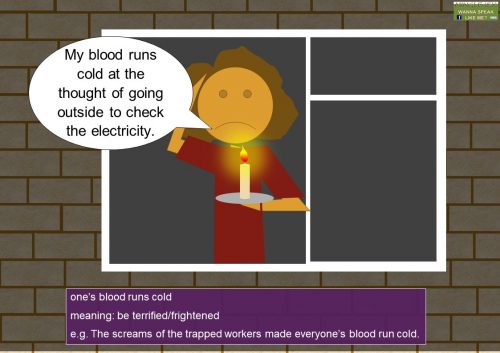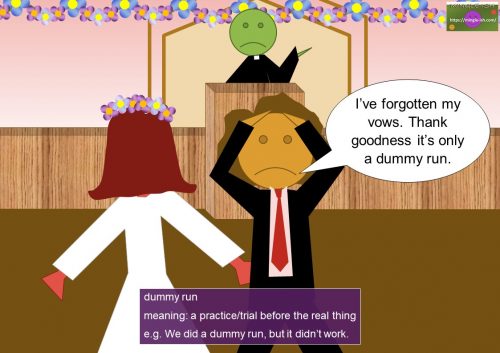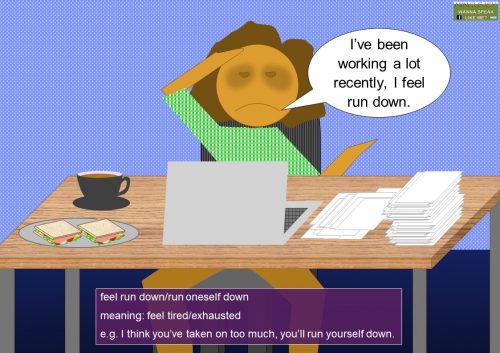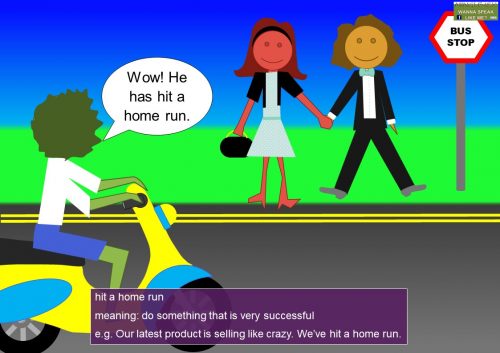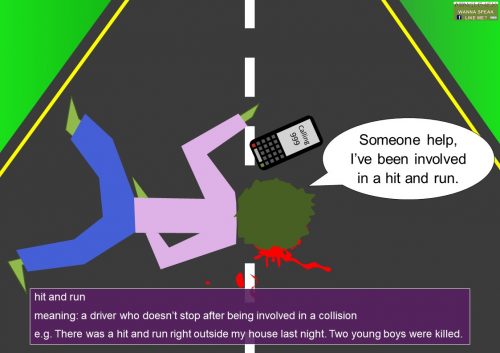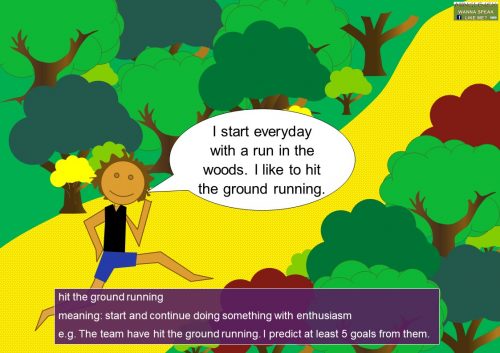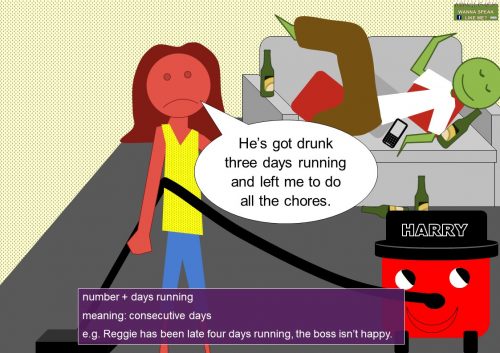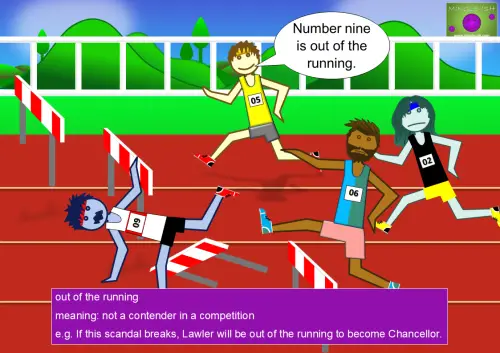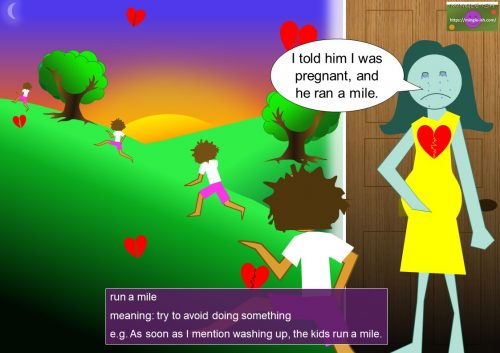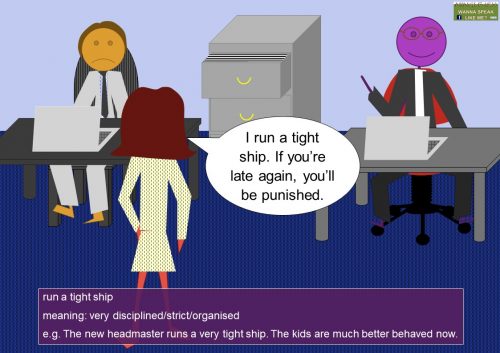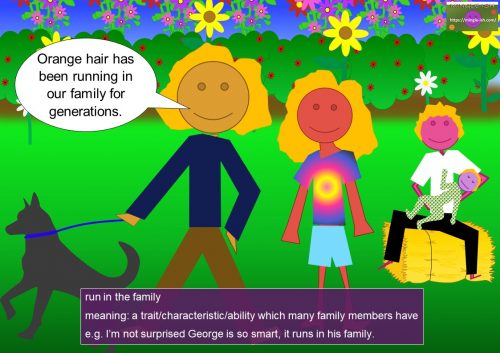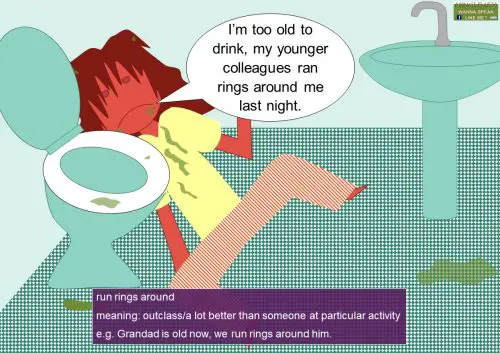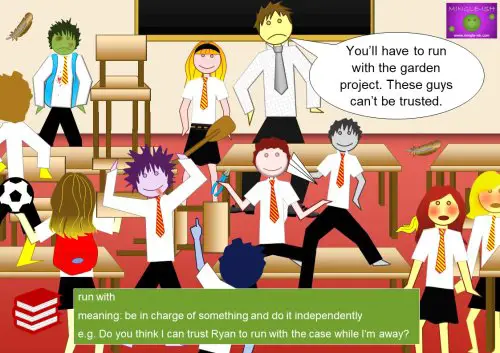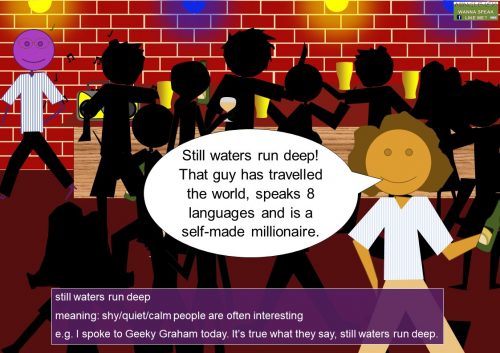The verb ‘run’ appears in loads of common idioms used in everyday English. These expressions can have surprising meanings that go beyond the literal sense of running. Perfect for ESL and EFL learners, this guide will help you understand and use them naturally in conversation and writing.
What does ‘run’ mean?
The word ‘run’ can mean many different things. As a verb, the meaning is to move faster than walking, manage or to flow.
For example:
- The dog is running around the park. (move faster than walking)
- I run my own bakery. (manage)
- I’ll run you a bath. (flow)
Run is an irregular verb. The past tense is ran and the past participle is run.
idiomatic phrasal verbs
Did you know phrasal verbs are sometimes used in idioms? See if you can spot any. If you don’t know any phrasal verbs with ‘run’, click here to learn them.
idioms list with ‘run’
- blood runs cold – terrified/frightened
e.g. The screams of the trapped workers made everyone’s blood run cold. - dummy run – a practice/trial before the real thing
e.g. We did a dummy run, but it didn’t work. - feel run-down/run oneself down – feel tired/exhausted
e.g. I think you’ve taken on too much, you’ll run yourself down. - hit a home run – do something that is very successful
e.g. Our latest product is selling like crazy. We’ve hit a home run. - hit and run – a driver who doesn’t stop after being involved in a collision
e.g. There was a hit and run right outside my house last night. Two young boys were killed. - hit the ground running – start and continue doing something with enthusiasm
e.g. The team have hit the ground running. I predict at least 5 goals from them. - in the long run – over a long period of time
e.g. £3000 is a lot to spend on the garden, but in the long run it’ll be worth it. - in the running – a contender in a competition
e.g. That song is amazing. It’s definitely in the running for Christmas number 1. - number + days running – consecutive days
e.g. Reggie has been late four days running, the boss isn’t happy. - out of the running – not a contender in a competition
e.g. If this scandal breaks, Lawler will be out of the running to become Chancellor. - run a mile – try to avoid doing something
e.g. As soon as I mention washing up, the kids run a mile. - run a tight ship – very disciplined/strict/organised
e.g. The new headmaster runs a very tight ship. The kids are much better behaved now. - run at a loss – not making a profit
e.g. I can’t run at a loss any longer, I think it’s time to throw in the towel. - run in the family – a trait/characteristic/ability which many family members have
e.g. I’m not surprised George is so smart, it runs in his family. - run out of time – have no time left to complete something
e.g. We’re running out of time. If we don’t fix the roof now, it’ll end up costing thousands. - run rings around – outclass/a lot better than someone at a particular activity
e.g. Grandad is old now, we run rings around him. - run with – be in charge of something and do it independently
e.g. Do you think I can trust Ryan to run with the case while I’m away? - still waters run deep – shy/quiet/calm people are often interesting
e.g. I spoke to geeky Graham today. It’s true what they say, still waters run deep. - the course of true love never did run smooth – there will always be difficulties in relationships
e.g. My family don’t accept her, but the course of true love never did run smooth.
Let’s see these idioms with pictures and meaning using real-life scenarios.
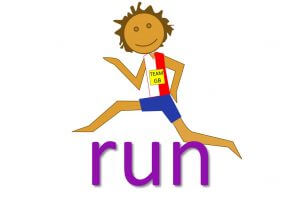
Psst…
Hey, did you know the verb ‘run’ has many phrasal verbs. Since you like idioms and phrases, you obviously want to improve your fluency and speak like a native.
Am I right?
I thought you might like to learn the phrasal verbs with ‘run’ too. They are very common in informal English and great to know/be able to understand if you happen to be speaking to a native. We use them all the time, like literally ALL the time.
